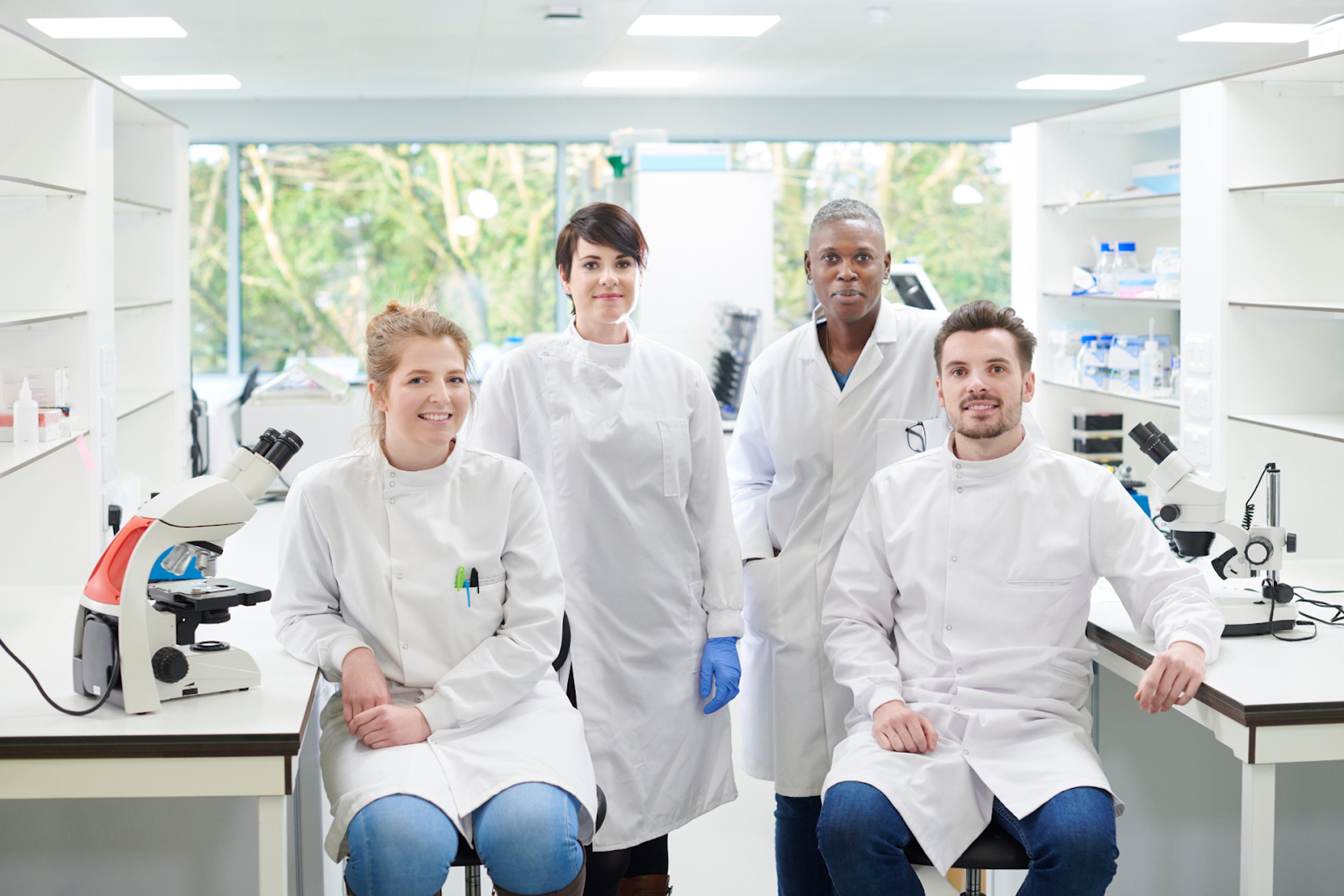Understanding the Secondary Application in Medical School Admissions
This article provides a comprehensive guide to understanding the secondary application in medical school admissions.
Posted April 10, 2025

Table of Contents
Free Event

Featuring Jaspreet K.
Ask Me Anything: Medical School Applications
Starting Friday, April 25
12:00 AM UTC · 30 minutes

Featuring Jaspreet K.
If you're applying to medical school, then you're probably familiar with the primary application, which typically includes your personal statement, academic transcripts, and letters of recommendation. However, some medical schools also require applicants to complete a secondary application. In this article, we'll explore the purpose of the secondary application and discuss strategies for crafting a strong application.
Why Medical Schools Require a Secondary Application
Medical schools use the secondary application to gather additional information about applicants that they can't get from the primary application. The secondary application typically includes questions about your experiences, interests, and goals, and may also require you to write additional essays. The goal of the secondary application is to help medical schools evaluate applicants more holistically and make informed decisions about who to invite for an interview.
One reason why medical schools require a secondary application is to assess an applicant's communication skills. Medical professionals need to be able to communicate effectively with patients, colleagues, and other healthcare professionals. The secondary application may include questions that evaluate an applicant's ability to communicate clearly and concisely.
Another reason why medical schools require a secondary application is to assess an applicant's fit with the school's mission and values. Medical schools want to admit students who share their commitment to patient care, research, and community service. The secondary application may include questions that evaluate an applicant's alignment with the school's mission and values.
The Key Components of a Secondary Application
While the specific components of a secondary application vary by school, there are some common elements you can expect to encounter. These include:
- Essays: Many secondary applications require you to write additional essays to elaborate on your experiences, interests, and goals. You may also be asked to explain any gaps in your academic or professional history.
- Experiences: Secondary applications typically ask you to provide more detailed information about your experiences, including your research projects, volunteer work, employment history, and extracurricular activities.
- References: Some medical schools require you to provide additional references or letters of recommendation as part of your secondary application.
- Transcripts: You may be asked to submit official transcripts from all of the colleges and universities you have attended.
It is important to note that secondary applications may also include additional questions or prompts that are specific to the school or program. These questions may ask about your interest in the school, your fit with the program's mission and values, or your future career goals. It is important to thoroughly research each school's secondary application requirements and tailor your responses accordingly.
Tips for Crafting a Strong Secondary Application Essay
If you're asked to write essays as part of your secondary application, there are several strategies you can use to make your essays stand out:
- Be specific: Use concrete examples to illustrate your points and avoid generalizations.
- Show, don't tell: Instead of simply stating that you are passionate about medicine, provide examples of how you have demonstrated that passion through your experiences.
- Edit carefully: Pay close attention to grammar, punctuation, and spelling, and ask someone else to review your essays for clarity and coherence.
Another important tip for crafting a strong secondary application essay is to tailor your essay to the specific program or school you are applying to. Research the program and its values, and incorporate those values into your essay. This will show the admissions committee that you have a genuine interest in the program and have taken the time to understand what makes it unique.
Common Mistakes to Avoid on Your Secondary Application
When completing your secondary application, it's important to avoid some common pitfalls that can hurt your chances of being accepted:
- Rushing through the application: Take your time to carefully review and revise all of your materials before submitting them.
- Not following directions: Make sure you understand the application instructions and provide all of the required materials.
- Providing incomplete or inaccurate information: Double-check all of your forms and documents to ensure that you have provided accurate and complete information.
- Copying and pasting from your primary application: The secondary application is an opportunity for you to provide new information, so avoid duplicating content from your primary application.
Another common mistake to avoid on your secondary application is failing to tailor your responses to the specific school you are applying to. Each school has its own unique mission and values, and it's important to demonstrate how your experiences and goals align with those of the institution. Take the time to research the school and its programs, and use that information to craft thoughtful and personalized responses to the application questions.
How to Choose the Right Experiences to Highlight on Your Secondary Application
When completing the experiences section of your secondary application, it's important to choose experiences that are relevant to your goals and that demonstrate your skills, achievements, and passion for medicine. Some strategies to consider include:
- Focusing on quality over quantity: It's better to provide detailed descriptions of a few key experiences than to list a large number of experiences without much detail.
- Highlighting diverse experiences: Medical schools value students who have a diverse range of experiences, so consider including experiences that represent different areas of your life or interests.
- Emphasizing teamwork and leadership: Medical schools want to see that you can work well with others and take on leadership roles when appropriate.
Another important factor to consider when choosing experiences to highlight on your secondary application is the relevance of the experience to the medical field. While it's great to have diverse experiences, it's also important to ensure that the experiences you choose are relevant to your future career as a medical professional. For example, if you're interested in pediatrics, highlighting your experience volunteering at a children's hospital or working as a camp counselor for children with special needs would be more relevant than highlighting your experience as a barista at a coffee shop.
Strategies for Addressing Weaknesses on Your Secondary Application
If you have a weakness in your application, such as a low GPA or MCAT score, there are strategies you can use to address these weaknesses and strengthen your application:
- Be honest: If you have a weakness in your application, it's important to acknowledge it upfront and explain what you're doing to address it.
- Provide context: If there are mitigating circumstances that explain your weakness, such as illness or family obligations, provide this context in your application.
- Highlight strengths: While you don't want to ignore your weaknesses, it's important to emphasize your strengths and the positive aspects of your application.
Another strategy for addressing weaknesses on your secondary application is to seek feedback from others. This could include asking for advice from mentors, professors, or admissions counselors. They may be able to provide insight into how to improve your application and address any weaknesses.
Additionally, consider taking additional coursework or retaking the MCAT to improve your scores. This shows a commitment to your education and a willingness to work hard to achieve your goals. Be sure to explain any additional coursework or test retakes in your application to provide context for the improvement.
Best Practices for Submitting Your Secondary Application Materials
When submitting your secondary application materials, it's important to follow these best practices:
- Submit all materials promptly: Medical schools often have tight deadlines for submitting secondary applications, so make sure you submit all materials as soon as possible.
- Double-check your materials: Before hitting submit, make sure you have reviewed all of your materials and that everything is complete and accurate.
- Communicate with the admissions office: If you have any questions or concerns about the application process, don't hesitate to contact the admissions office for help.
Additionally, it's important to keep track of your application status. Check your email and application portal regularly for updates on the status of your application. If you notice any discrepancies or issues with your application, reach out to the admissions office immediately to address them. Remember, submitting your secondary application materials is just one step in the application process, so stay organized and proactive throughout the entire process.
The Importance of Timely Submission of Your Secondary Application
The timeline for submitting your secondary application can vary by school, but in general, it's important to submit your application as soon as possible to ensure you are considered for an interview. Medical schools typically use rolling admissions, which means that they review applications as they receive them and fill their class on a first-come, first-served basis.
Submitting your secondary application in a timely manner also shows your commitment and interest in the school. Admissions committees want to see that you are serious about attending their institution and that you have taken the time to thoroughly research their program.
Additionally, submitting your application early can give you an advantage in the admissions process. As the application cycle progresses, the number of available interview slots may decrease, making it more difficult to secure an interview. By submitting your application early, you increase your chances of being invited for an interview and ultimately being accepted into the program.
How the Secondary Application Fits into the Overall Medical School Admissions Process
The secondary application is just one part of the overall medical school admissions process, which typically includes the following stages:
- Primary application: This includes your personal statement, academic transcripts, and letters of recommendation.
- Secondary application: This includes additional essays, experiences, and references.
- Interview: If you are invited for an interview, you will have the chance to further demonstrate your skills and qualifications.
- Admissions decision: Medical schools will review your entire application and make a decision about whether to offer you a spot in their program.
Understanding the Role of the Admissions Committee in Evaluating Your Secondary Application
The admissions committee is responsible for evaluating your secondary application and making a decision about whether to invite you for an interview. The committee typically considers a range of factors, including your academic record, experiences, personal qualities, and fit with the school's mission and values. While the specifics of the evaluation process may vary by school, in general, the committee will be looking for evidence that you have the skills, qualifications, and dedication to succeed in medical school and beyond.
How to Make a Lasting Impression with Your Secondary Application Materials
To make a lasting impression with your secondary application materials, it's important to be thoughtful, thorough, and sincere in your responses:
- Be genuine: Don't try to present yourself as someone you're not - be honest about your strengths, weaknesses, and goals.
- Show your passion: Demonstrate your enthusiasm and commitment to medicine through your essays and experiences.
- Be reflective: Use your essays as an opportunity for reflection and self-assessment, and show how you have grown and developed over time.
By following these tips and strategies, you can craft a strong secondary application that showcases your skills, experiences, and passion for medicine.











